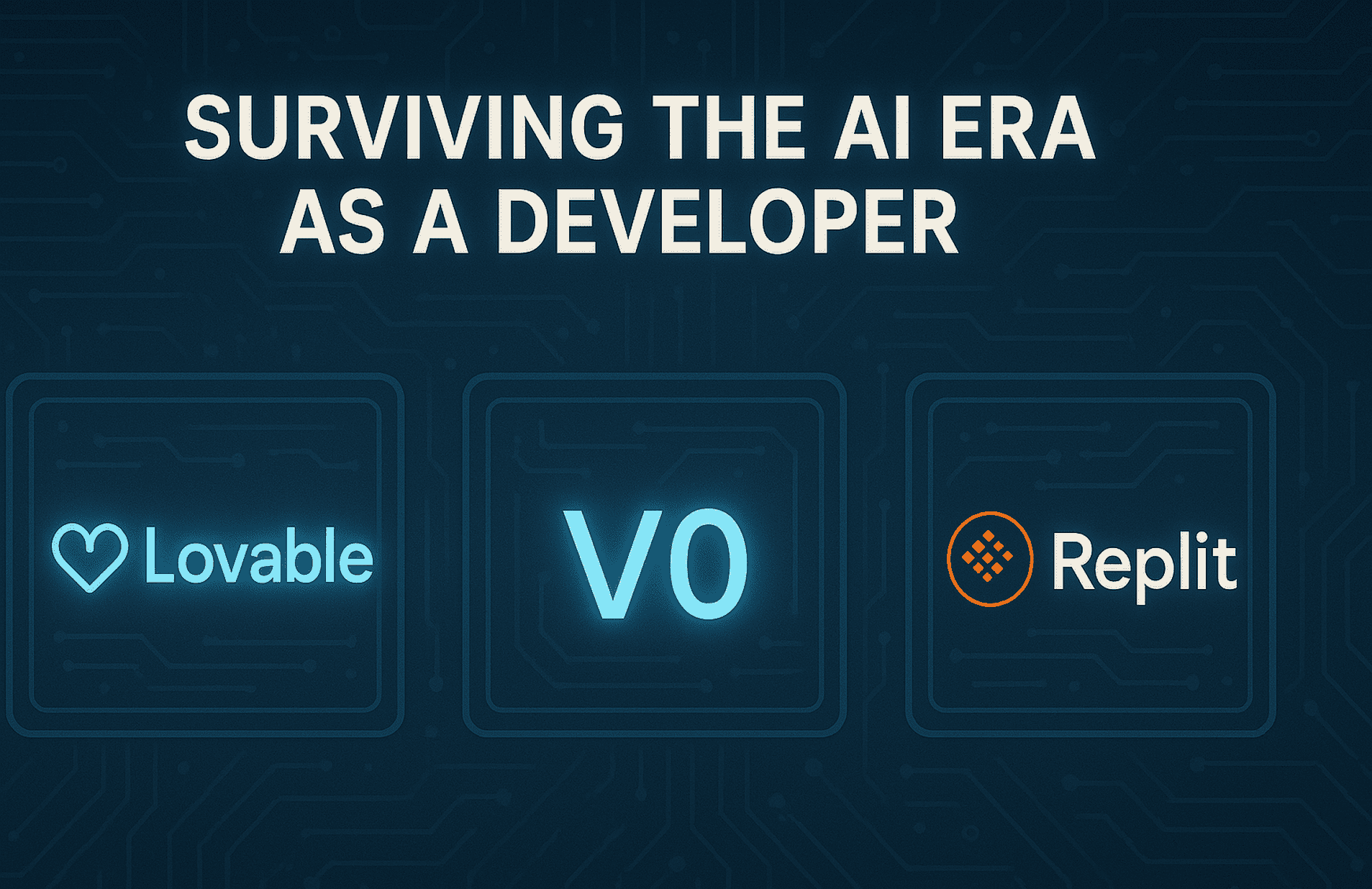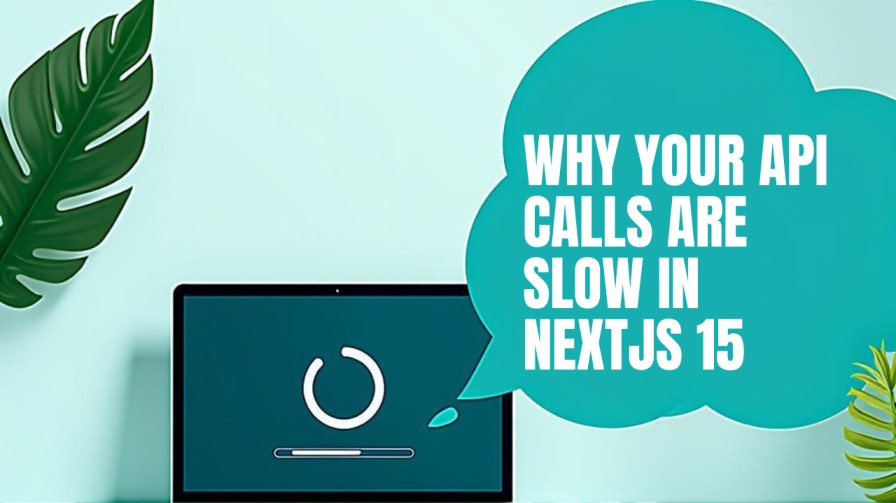How to Survive as a Developer in the AI Era of V0, Lovable & Replit

Introduction
The developer landscape is evolving rapidly. With AI tools like Lovable, V0.dev, and Replit Ghostwriter, building applications is no longer limited to seasoned programmers.
These platforms are empowering non-coders and developers from different backgrounds to build fully functional apps with just prompts or drag-and-drop interfaces.
If you're a developer wondering "Will AI replace me?", the real question is: How can I adapt and stay relevant?
This blog explores how to thrive in this new era by embracing these tools instead of fearing them.
What Are Tools Like Lovable, V0, and Replit?
Lovable.so
Lovable is an AI-powered startup-building tool. You can describe your app idea in plain text, and it generates a complete front-end and basic logic. Great for MVPs and product prototypes.
V0.dev
Built by Vercel, V0 lets you build full UIs by typing natural language prompts. It outputs clean React/Next.js code, which you can export or edit.
Replit Ghostwriter
Replit Ghostwriter is an AI coding assistant that helps you write and debug code in real-time. It’s integrated directly into the Replit IDE and supports many languages.
Why Should You Care?
- AI is not replacing you — it’s replacing parts of your workflow.
- Non-coders are building apps faster than ever.
- The job market is shifting toward AI-assisted development.
So if you're still doing things the old way, it's time to evolve.
How Developers Can Adapt
1. Understand the Strengths of AI Tools
Don’t try to compete with AI in code generation. Instead:
- Use AI for boilerplate, scaffolding, and initial drafts.
- Focus your time on architecture, performance, and business logic.
2. Build AI-Enhanced Workflows
Combine your skills with AI to 10x your output:
- Use V0.dev to quickly prototype UIs.
- Use Replit Ghostwriter or GitHub Copilot for faster coding.
- Use Lovable for MVP generation and idea testing.
3. Double Down on Problem Solving and System Design
AI can write code, but it doesn't understand the problem deeply — that’s your edge.
- Sharpen your system design knowledge.
- Understand user needs, product goals, and how to architect scalable solutions.
4. Stay Updated With the Ecosystem
Follow trends and tools:
- Explore open-source AI projects.
- Learn how to integrate AI into your apps (e.g., OpenAI APIs).
- Stay active on GitHub, Twitter, and newsletters like TLDR AI or This Week in AI.
Skills That Are Still in Demand
Hard Skills
- Full-stack knowledge (e.g., Next.js, Node.js, PostgreSQL)
- DevOps & CI/CD
- APIs and third-party integrations
- Performance optimization
Soft Skills
- Communication
- Project management
- Team collaboration
- Curiosity & adaptability
What You Shouldn’t Do
- Ignore AI tools – You’ll fall behind.
- Depend entirely on AI – You’ll lose your edge.
- Be rigid with a single framework – Flexibility is key.
Bonus: How to Use These Tools Smartly
Use AI for:
- Generating component skeletons
- Creating test cases
- Code refactoring
- Learning new syntax
Use Your Brain for:
- Deciding what to build and why
- Optimizing user experience
- Managing state, performance, and accessibility
Final Thoughts
The AI wave isn't here to end your career — it's here to level you up. By combining your human creativity and decision-making with AI’s speed and efficiency, you become unstoppable.
Key Takeaways
- Tools like Lovable, V0.dev, and Replit are changing how apps are built.
- Use AI tools to boost your productivity, not replace your thinking.
- Focus on what AI can’t do: deep problem-solving, architecture, and human empathy.
- Stay adaptable, keep learning, and evolve with the ecosystem.



